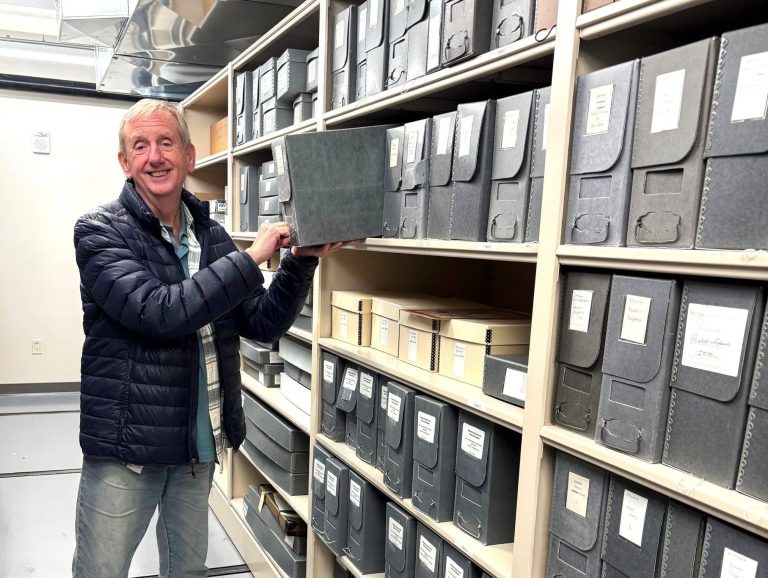By The Rev. Marek Zabriskie
When I was teenager, my life revolved around playing soccer. Unfortunately, I was legally blind and had to wear very thick metal-rim glasses. Back then, they hadn’t developed the high intensity plastic that creates thin glasses.
So, I wore a set of glasses that looked like the bottoms of Coke bottles. They made me feel embarrassed when I was around girls, and when I headed a soccer ball sometimes my glasses got smashed. Finally, when I was sixteen, I got my first set of contact lenses. They changed the way that I could see and how I felt about myself.
Real religion is like that. It improves our vision spiritually, changes how we feel about ourselves, and it helps us to see things that we would otherwise fail to see – like angels who are all around us, if only we have the spiritual eyes to see.
The word “angel” actually derives from a Hebrew word that means “messenger.” Angels appear over 300 times in the Bible. They come to guide, console, comfort, prod and protect.
Angels ministered to Jesus in the wilderness after he had fasted and prayed for forty days and battled the devil’s temptations. Angels ministered to those who came seeking Jesus at his tomb after his crucifixion. Every time we celebrate the Eucharist, we join our voices “with angels and archangels and with all the company of heaven.”
In most cases, angels come in disguise. They appear in front of us, and we mistake them for someone else.
Years ago, the late, great Charlie Chaplin read in the newspaper that there was going to be a Charlie Champlin look-alike contest. He thought, “Wouldn’t it be wonderful if unknown to anyone, I entered the contest?” And he did! He finished sixth! He appeared in front of the judges, but they didn’t recognize him!
Angels are like that. They enter our lives, but because they are disguised as human beings we fail to see them. They appear in the guise of a friendly neighbor, a kindly colleague, or a stranger who does or says something unexpected that changes us forever.
In his novel Tongues of Angels Reynolds Price hints at the possibility of angels. He tells the story of a man in his fifties who remembers back to when he was in college and served as a camp counselor at a boy’s camp. He met a fourteen year old boy named Raphael or “Rafe.”
During that summer, he saw in Rafe a spirit of freedom, mischievous joy, and an unearthly sense of being in touch with nature and life. Now in his fifties, the man realizes that his encounter with Rafe shaped his life in beautiful ways. He looks back and describes the boy as “a direct messenger from central control, for…Love worked through [him].” Rafe was an angel.
I recently asked a young couple why they had joined Christ Church. They said, “There’s an usher at the church door who greeted us so warmly when we first came to church, and she welcomed us and was so glad to see us. She remembered our names each Sunday that we returned to church. That’s why we want to join Christ Church.” Being an angel is not so complicated.
Have you met any angels along the way? Can’t you remember someone who mentored you in school or at work? Can’t you recall someone who imparted wisdom, steered you out of trouble or saw something in you that others could not see?
Can’t you recall a time when everything was coming undone and chaos enveloped you and someone intervened and took you by the hand and helped you to move forward? Can’t you remember a chance encounter along your life’s journey, when an off-hand remark or a chance encounter changed the course of your life?
Frederick Buechner writes, “Angels are powerful spirits whom God sends into the world to wish us well. Since we don’t expect to see them, we don’t. An angel spreads its glittering wings over us, and we say things like, ‘It was one of those days that made you feel good just to be alive,’ or ‘I had a hunch that everything was going to turn out all right,’ or ‘I don’t know where I ever found the courage.’”
There’s an angel in the state of Texas. Her name is Carol. You can ask Michael Siegel about her, and he will tell you that it was Carol, who entered his life like an angel. Michael Siegel was a 19-year-old sophomore at the University of Texas. He was working late at night at a convenience store earning money for college when a man robbed the store.
There was a flurry of activity. A gun went off, and a bullet lodged in Michael Siegel’s brain. Michael was rushed to the hospital. The doctors operated, and after a successful operation, they said to Michael’s family, “He may never walk or talk or write again.”
But Carol, his therapist, was a Christian. She said, “I’m not going to let you go under.” Carol did not believe in the word impossible. She said to Michael, “Listen, with God all things are possible. Now let’s keeping working.” Every day she worked on Michael’s writing, his walking, and his speech.
Several years later, Michael graduated with honors from the University of Texas because an angel helped him through. After the graduation ceremony, Michael gave Carol a very unusual gift. He gave her a dictionary with the word “impossible” crossed out.
Angels give us hope even in hopeless situations. The problem is that we imagine angels to look different than us. We’re looking for halos and feathery wings, and we miss seeing the angels right in front of us.
The Rev. Marek P. Zabriskie is Rector of Christ Church Greenwich and editor of The Bible Challenge book series published by Forward Movement.



